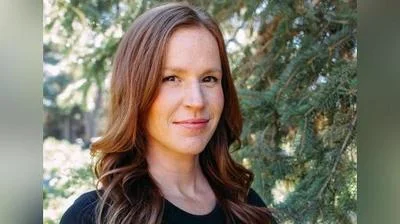District 1 | Chairman Jack Sellers | Maricopa County
District 1 | Chairman Jack Sellers | Maricopa County
Maricopa County supervisors have approved a reduction in the property tax rate for the fourth consecutive year while also trimming the overall county budget by 11%. The final FY 2025 budget, which was unanimously approved today, underscores the Board’s commitment to easing financial burdens on families and individuals amid persistently high prices and statewide economic challenges.
“This is a budget that supports future growth and quality-of-life issues while guarding against the possibility of an economic downturn,” said Board of Supervisors Chairman Jack Sellers, who represents District 1. “And because we have budgeted conservatively in the past, we can cut the tax rate and still make significant investments in high-priority areas such as public safety, election administration, workforce development, and heat relief.”
The approval follows a legislative session that addressed a statewide budget deficit. Despite a slowdown in sales tax revenues affecting counties across Arizona, Maricopa County’s conservative budgeting philosophy has positioned it better than most to handle these challenges.
“I’m proud to vote for a budget that puts the taxpayers first,” said Vice Chairman Thomas Galvin of District 2. “We are taxing less and spending less this year, and yet we are still providing our residents with exceptional customer service, whether that’s through a new online permitting system, improvements to our animal shelters, or giving people safe, secure, and convenient ways to vote in this year’s elections.”
The $3.87 billion county budget includes several protections for taxpayers. While some other counties are taxing at their maximum allowable rates under state law, Maricopa County’s tax levy is $257.1 million below the maximum.
The Board has reduced the county’s primary property tax rate for the fourth consecutive year to 1.16 (or $116 on a $100,000 home). In 2021, the rate was 1.4.
The county is also benefiting financially after two years of paying down unfunded pension liabilities for retiring government employees in law enforcement. By reducing significant debt at low interest rates in FY 2023 and 2024, board members have ensured that pension debt will cost taxpayers less now and in future budgets.
“The budget we approved today provides great value to residents by investing in programs and projects that make our community safer and more economically and culturally vibrant," said Supervisor Bill Gates of District 3. "It funds staffing and technology that will ensure safe, secure, and accurate elections in July and November. And we did all that while cutting taxes too."
Maricopa County operates efficiently, spending less than $1,000 per resident compared to some similar-sized counties spending three or four times as much.
The county maintains a lean workforce with 3.3 employees per thousand residents—one of the lowest ratios nationwide—and has kept property tax levy growth under 3% over the past five years.
Public safety funding constitutes 47% of the overall budget covering core services like law enforcement, jails, probation courts, criminal prosecution and defense. Both the County Attorney’s Office and Adult Probation have contingency funds to support projected staffing needs. A committee established by Chairman Sellers is exploring long-term funding sources for public safety priorities.
Another priority is heat relief; Maricopa County leads nationally in identifying heat-related deaths. Following record numbers in 2023, nearly $14 million has been allocated towards heat relief efforts including extended hours at relief sites around the Valley.
Maricopa County has fully allocated federal funds received post-pandemic from the American Rescue Plan Act (ARPA), directing nearly $900 million toward public health and economic recovery efforts.
“Maricopa County has been recognized as one of the best in nation at providing career advancement and workforce development opportunities to residents,” said Supervisor Clint Hickman of District 4. “When we train workers for in-demand careers...our entire community benefits.”
“I’m proud of how we’ve used recovery dollars to increase affordable housing stock...and improve public health infrastructure,” added Supervisor Steve Gallardo of District 5.
Major capital projects funded include a new West Valley Animal Shelter; MCSO substation; Public Health building; parks; library improvements; Southwest Juvenile Detention Facility remodel; downtown elections center construction; with $29 million allocated for supporting primary/general elections this year.
Economist Jim Rounds commented: "This has been the most formal conservative responsible practice that I've seen of any government entity."
---






 Alerts Sign-up
Alerts Sign-up